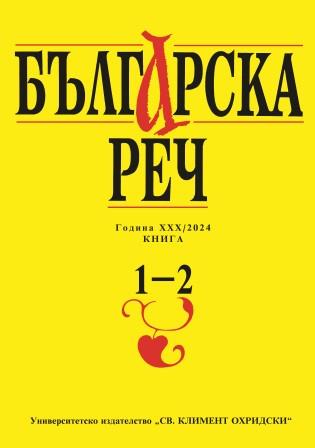Езиковият образ на престъпността от Възраждането до днес
The linguistic image of crime from the Revival to the present
Author(s): Margarita GerginovaSubject(s): Language and Literature Studies, Applied Linguistics, Sociolinguistics, Philology
Published by: Софийски университет »Св. Климент Охридски«
Keywords: crime; media sensationalism; public interest; criminal acts; justice system
Summary/Abstract: Public interest in crime, tragedies, and criminal acts has always been a subject of curiosity and fascination. Numerous studies confirm that we are generally drawn to specific types of crimes and victims. For centuries, people have engaged with this topic through scary stories, books, films, newspapers, television shows, social media, and more. Undeniably, the media, in its various forms throughout different eras, has played a crucial role in shaping perceptions of criminals, crime, and the justice system. The journey of this topic in Bulgaria is both intriguing and cohesive. Its widespread coverage began during the Bulgarian National Revival, when various criminal news stories were published in periodicals. Today, crime and tragedies occupy a significant portion of media space. Interestingly, the motives for publishing and disseminating such news have remained remarkably consistent across eras—media sensationalism aimed at garnering greater public interest, which logically leads to higher revenues for the respective media.
Journal: Българска реч. Списание за езикознание и езикова култура
- Issue Year: 2024
- Issue No: 1-2
- Page Range: 38-56
- Page Count: 19
- Language: Bulgarian
- Content File-PDF

